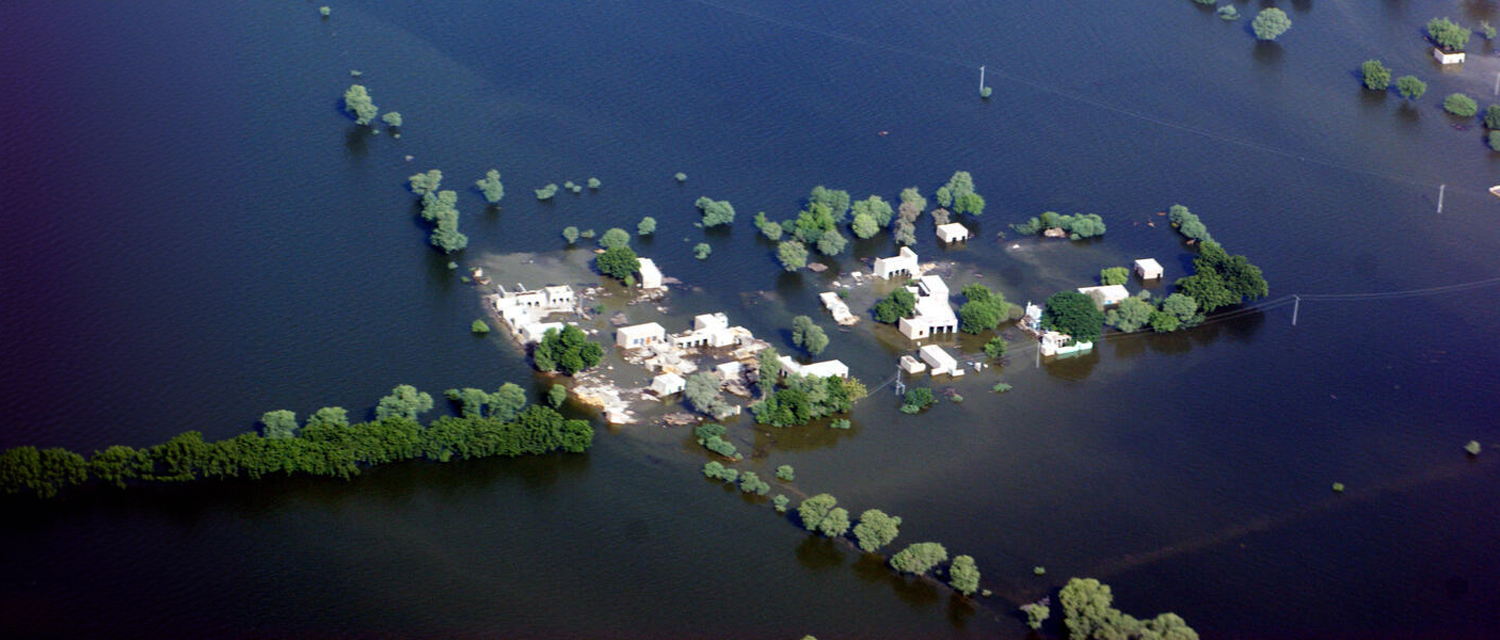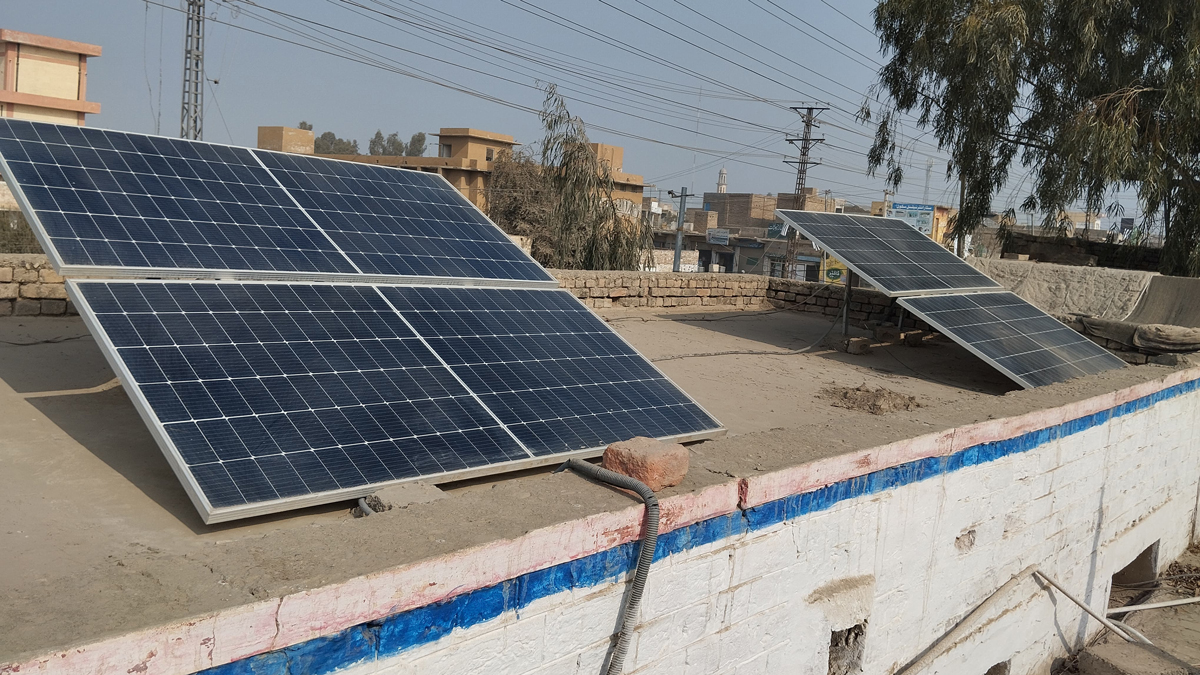
Hazrat Muhammad had a bad first day.
Superintendent of Sub-Jail Ghalanai in Pakistan’s Khyber Pakhtunkhw Province, he had moved to a new jail facility just as summer temperatures soared and the frequency of power cuts peaked. Food and medicines for the prisoners were perishing without refrigeration.
Digital equipment stopped working. Prisoners languished, unable to get any respite from the sweltering heat.
Mr. Muhammad was at a loss as to what to do.
In recent years, power supplies in Pakistan have become increasingly unreliable, and there is a dearth of renewable energy. In the Khyber Pakhtunkhw Province, where the UN Office on Drugs and Crime’s (UNODC) country office sits alongside the Prison Service, there are frequent power cuts – also known as ‘load shedding’ – for up to 10 to 15 hours every day.
Running a safe, efficient and effective prison system becomes difficult in such conditions. Without steady electricity, prisons cannot maintain efficient digital information management systems, with a knock-on effect on the management of prisoners’ cases, security and more.
Worst of all, as Mr. Muhammad experienced, these cuts impact the practical needs of prisoners: keeping food and medicines cool is impossible. Rising average temperatures and overcrowding have led to dangerous and inescapable conditions in many prisons.
To help overcome these challenges, UNODC installed solar systems in six prisons in Pakistan. These provide stable, environmentally friendly and cheap sources of energy, protecting prisoners’ basic needs and keeping vital digital systems operational.
The impact has been immediate. “The introduction of solar electricity has been a game-changer for us, especially in coping with the persistent issue of load shedding,” says Najam Abbasi, Superintendent of District Prison Mansehra.
“With unreliable access to conventional electricity, our jail faced numerous challenges in conducting daily activities, running digital systems and ensuring it remained connected to essential services. However, thanks to UNODC's intervention, we now have a reliable and sustainable source of power that has significantly improved our working capacity.”
The introduction has been a win-win for the environment and for the safe, humane and efficient functioning of prisons. Abdul Bari, Superintendent of District Prison Kohat, describes how before the introduction of the solar panels, consumption of fuel for the prison’s generator was on the rise. Worse, even the backup generator provided no guarantees: “Official correspondence was interrupted, causing delays in dealing with urgent prisoner affairs. Installation of the solar system has resolved all these issues.”

For Mr. Hashmatullah, Additional Inspector General Prisons in Khyber Pakhtunkhwa Peshawar, these six solar systems were only the start. “Pakistan is blessed with natural resources, including availability of sunlight. After the installation of solar systems in a few jails, it was noted that they provide energy constantly and with the lowest cost [compared to other sources of electricity].”
Such a finding prompted an initial assessment to explore the roll out of solar energy across the country’s prisons.
“It will not only save resources but protect our environment as well. We were inspired through UNODC’s solar energy initiatives and decided to switch completely,” Mr. Hashmatullah said.
The UN Standard Minimum Rules for the Treatment of Prisoners – known as the Nelson Mandela Rules – provide the blueprint for good, rights-respecting prison management in the 21st century.
Yet it is impossible to apply the Rules in the face of an unmanaged climate crisis, which jeopardizes prisoners’ basic needs.
For Rizwan Ullah, UNODC National Program Officer, climate resilience and prison reform go hand in hand. “In the years 2022 and 2023, several jails were destroyed due to devastating floods in Pakistan,” he says. “Similarly, the unprecedented harsh weather in past few years has greatly disturbed the lives of prisoners, as no remedy is available to cope with it. What we need is climate friendly infrastructure, the provision of air coolers, protection from floods, and a constant source of energy.”
Mr. Ullah is clear: “Climate resilience initiatives are needed now.”
UNODC is at the cutting edge of work to develop climate resilience strategies for prison and penal systems worldwide. Speaking on Nelson Mandela International Day 2023, Executive Director Ghada Waly noted: “Those who are in prisons often have no escape from increasingly extreme weather conditions and natural hazards, and they are also deeply affected by related disruptions, such as price shocks and food and energy shortages.”
In light of pressing needs, she called for financial support for a dedicated UNODC initiative aimed at enhancing the climate change resilience of prison systems.
Today, life in Sub Jail Ghalanai looks very different. Digital systems work reliably; food and medicines can be kept cool; and there is some relief from the summer heat for prisoners. But as the climate crisis worsens, solutions in penal systems worldwide must keep pace.
This story is the second in a series about climate resilience in prisons. Read the first story on food security in Sri Lanka.
UNODC works with over 50 Member States around the world to reduce the scope of imprisonment, strengthen prison management and improve prison conditions, and foster the social reintegration prospects of offenders. Find out more.